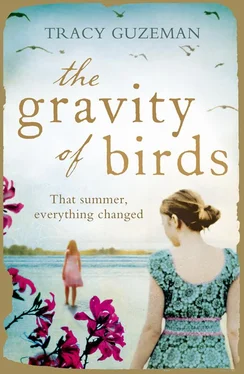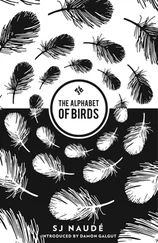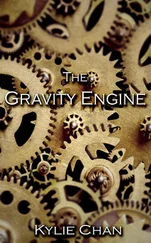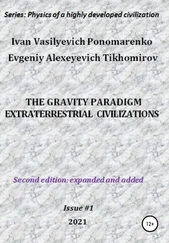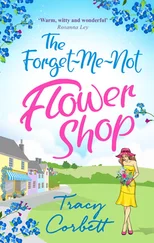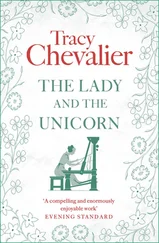He dropped his hand and stepped back, studying the floor for a moment before looking at her again. ‘Fine. From this point forward, I will eliminate both precocious and precious from my vocabulary. Am I forgiven?’ He made a face and pressed his hands together, as if praying.
He was making fun of her in a kind way, or else trying to make her laugh. The world righted itself as quickly as it had been thrown off its axis. He was sorry he’d hurt her feelings. He wanted to be forgiven. A small current of power coursed through her.
‘Yes. I forgive you. Besides, I’ll bet if I asked your parents, they’d say you weren’t very mature yourself. You can’t be that much older than I am, Thomas.’
This time he didn’t smile. ‘Subterfuge doesn’t suit you, Alice, and I hope it’s not something you’ll grow into. If you want to know how old I am, just ask. Although I wouldn’t recommend it as a common practice. Most people would take offense. Fortunately, I am not most people.’ He bowed at the waist. ‘I’m twenty-eight. Worlds older than you. Ancient.’
‘You don’t seem ancient.’
‘Well, I am. I was born old. My mother told me once that I looked like a grumpy old man from the moment I was born—wrinkled, pruney face, rheumy eyes. You’ve heard the expression an old soul ? I was born with a head full of someone else’s failed dreams and a heart full of someone else’s memories. There’s nothing to do for it, I suppose, although if I knew I was going to turn out this way, I would have preferred to choose whose memories and heartbreaks I’d be saddled with.’ He looked at her. ‘And you? I suppose, like most people your age, you’re anxious to be older.’
She ignored the pointed people your age . She didn’t want to admit that whatever serious plans she’d made for herself changed depending on the day of the week, or on the book she’d just read, or whether she felt strong from a full night of sleep or weak from a fevered one. The future was a dark cave yawning just ahead, beckoning her to enter.
‘Not anxious. You get older, whether you want to or not.’ She shrugged. ‘Maybe we’ll all be blown up and it won’t matter.’
‘What? You mean by the Communists? I shouldn’t think so.’
‘Why not?’
‘I don’t suppose the majority of them want to blow us up any more than they’d want us blowing them up.’
Alice nodded, remembering other conversations she’d overheard. ‘Mutual assured destruction.’
‘I’m shocked at the knowledge you possess. At your tender age I think it might be healthier for you to be less well-informed. At the very least, it would make for better sleeping. You’ll grow up fast enough as it is. One becomes jaded and cynical so quickly.’ He tore a filmy piece of vellum from a roll, placing it over the sketch and rolling the pieces into a tube.
‘Maybe one should try harder not to be so jaded and cynical.’
Thomas laughed and poured himself another drink. ‘A toast to you, Alice. You’re a young lady wise beyond your years. Wise beyond mine, as well. May nothing, and no one, disappoint you. Now take your drawing and go. I’ve got work to do.’
‘Can I come again tomorrow?’
‘I’ll likely go mad if you don’t. And as you kindly indicated, I need help improving my perspective.’
She was almost all the way down the drive and back to the Restons’ cabin before she realized she’d left her books sitting on the end table next to the sofa. She hadn’t even asked him about the poem. Tomorrow , she thought. But there was a sketch she wanted to finish—the domino-marked bufflehead she’d spotted scooting through the lake’s shallows that morning—and other poems waiting to be read. So she retraced her steps.
The wind picked up. A flock of grackles darkened the sky overhead, their raucous chatter filling the air like the swing of rusty gates. There was another storm coming in and if she wasn’t quick she’d be drenched, even though the walk back was no more than five minutes. She left the door to the cabin ajar when she went in, calling his name softly, but there was no answer. Work to do most likely meant sleep, she imagined, seeing his empty glass. She hurried into the main room. The doors leading to other parts of the house were closed and everything was quiet. The cabin itself seemed to have stopped breathing, its creaks and settlings absent in spite of the wind outside. She could still see his footprints in the chalk dust on the floor, like a ghost’s, leading to and away from his easel.
A gust swept into the room and sent the pile of drawings resting on the easel flying. Why hadn’t she thought to close the door? She started to pick them up, intending to put them back before he noticed anything was out of place, but stopped when she glanced at the first piece of paper she touched, a colored pencil sketch. Her breath caught in the back of her throat and her skin turned clammy. She sank to her knees, unable to breathe.
Even if she hadn’t looked at the face, she would have known it was Natalie. Those were her sister’s arms and legs flung so casually across the sofa, the pale thread of a scar just below her knee from a skiing accident two years prior. That was Natalie’s hair, mussed and wild, like caramelized sand, one long curl wrapped around a finger. That was the necklace from her latest boyfriend, the tiny pearls glowing against the skin of her neck. The tan line crossing the slope of her breasts, the small whorl of her belly button, the pale skin stretched taut between her hip bones, all the secret, private pink of her. And, erasing any hope or possible doubt, Natalie’s knowing smile.
Finch groped for the belt of his raincoat as he got out of the cab, holding his arm up in an attempt to shield his bare head from the late October rain. He crossed the sidewalk in two steps and took the steep flight of stairs, steering clear of the refuse and odors percolating on either side of him, but landing squarely in the puddles that had formed in the centers of the treads. The wet seeped into his socks as he watched the cab disappear. Stranded. He briefly considered calling a car service and returning to his own apartment, a warmly lit, tidy brownstone in Prospect Heights, where, thanks to his daughter, the refrigerator would be well-stocked with wholesome if uninteresting food. Your blood pressure , she would say. Your heart . Your knees . He would ask, How are prunes going to help my knees? , wondering if he had remembered to hide his pipe, and she would simply shrug and smile at him and in that smile he would see for the briefest of moments his wife’s mouth, and his entire perfect world, all as it had once been.
When he’d arranged for the Williamsburg apartment for Thomas Bayber five years ago, the neighborhood was in what the smiling real estate agent termed ‘a period of transition.’ Finch had considered it an investment, optimistically assuming it would transition for the better, but gentrification had yet to make its way this far south. He peered through a grimy, cracked pane of glass. He could barely open the front door, swollen from all the rain, and when he pressed the buzzer for 7A there was, as always, a comedic interlude when buzzer and buzzee could not coordinate their efforts and Finch yanked impatiently at the elevator door several times, always managing to turn the knob just as the lock reengaged. After three thwarted attempts and much cursing under his breath, he turned down the hall and headed toward the stairs.
He made it as far as the fifth-floor landing before he stopped, sitting down on a step and rubbing his throbbing knees. These persistent fissures in the machinery presented themselves with stunning diligence. His head ached, whether from guilt or anger, he couldn’t be sure. He only knew he didn’t enjoy being summoned. There was a time he might have chalked this visit up to a responsibility of friendship, stretching the very definition of the word. But he had moved beyond the requirement of an explanation and now saw things for what they were. He was useful to Thomas at times, less so at others. It was as simple as that.
Читать дальше
